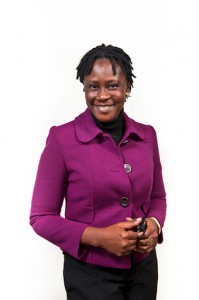(Mis)behaviour: Donor Policies and Gender Equality
“…this is the reality we face every day. It demonstrates the challenges of matching policy and practice.”
Guest Post by Rosa Musa of the African Women’s Development & Communications Network (FEMNET)

Nairobi, Kenya – I set out early in the morning of September 10th to join 35 other civil society colleagues from across the globe for a deliberation on the Sustainable Development Goals and the Post-2015 Development Agenda.
As the taxi meandered and navigated through the rubble and dust—characteristic of road work in progress—my gaze fell upon on a newspaper under the seat in front of me. The headline that caught my attention was utterly depressing: Man Slaughters Five Sons After Quarrel with Wife. I went on to read the gory details of how battering his wife and threatening to kill her with an axe was a daily pastime for Mr. John Kiprono Kitui.
Working in an organisation that advocates for women’s rights in Africa, this is the reality we face every day. It demonstrates the challenges of matching policy and practice as 2015 approaches and we prepare to bid farewell to the Millennium Development Goals (MDGs).
The article ignited me. I thought, “How can this be explained in a world where gender equality is mainstreamed in all eight MDGs? Where countless conventions exist that are supposed to serve the hopes and aspirations of women?”
Those of us who work in the area of development and women’s rights clearly still have a lot of work to do.
As a pan-African organisation with members all across Africa, FEMNET works with and through women’s NGOs running programmes and projects at the national level. The network collaboratively identifies our priorities, which currently range from women in leadership and governance to women’s economic empowerment to sexual and reproductive health to the institutional strengthening of women’s organisations and networks in Africa. FEMNET implements our programmes with the understanding that no society can be considered free or democratic unless all its members—especially women—have equal rights, equal access to opportunities, and equal control over resources.
And where tragedies like that of the Kitui family do not occur.
A starting point for realising this vision is implementation of the Busan Partnership Framework and all other processes that will follow the MDGs. More than anything else, as governments, donors, and other partners move from Busan to address development issues and aid financing, we need a paradigm shift that is truly transformative, just, and sustainable for women. Changes are needed in the aid architecture to achieve inclusiveness, to ensure legitimacy, and to correct the linked imbalances of power in the inexorably linked country-to-country and male-female relations.

Looking towards 2015 and beyond, civil society organisations must remain committed to the process by actively assisting donors, development agencies, and governments to transition from a narrow focus on aid delivery, to outcomes that ensure all human beings are treated equally. As a representative of FEMNET in Busan, I participated because we envisage an Africa characterised by women’s shift from victims to agents of change, using international legal and policy commitments to strengthen actions towards change at home.
We are all part of the solution.
This guest post is part of an Oxfam-sponsored feature on Devex entitled, “One year later, where do we stand on commitments made in Busan?”